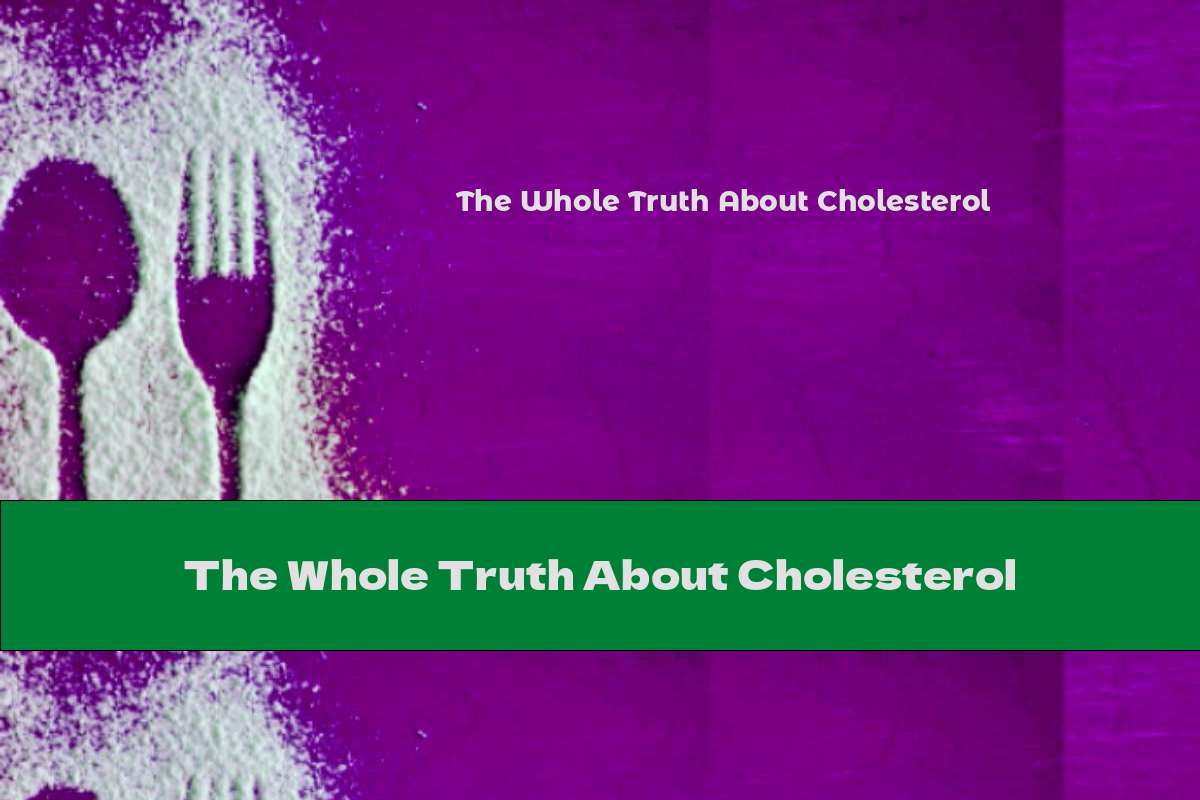The Whole Truth About Cholesterol
 Author: Victoria Aly
Time for reading: ~4
minutes
Last Updated:
February 17, 2026
Author: Victoria Aly
Time for reading: ~4
minutes
Last Updated:
February 17, 2026

Cholesterol war was declared 10 years ago. Let's find out why this fight makes no sense and which contradictory beliefs about cholesterol are not entirely true.
Cholesterol war was declared 10 years ago. And despite the fact that this compound is supposedly rehabilitated, many still continue to accuse it of all sins. Let's find out why this fight makes no sense and which contradictory beliefs about cholesterol are not entirely true.
Cholesterol is important for the construction of cell membranes, steroid hormones, bile production and the synthesis of vitamin D. All these processes occur in our bodies every day, without interruption, because the need for cholesterol is always there. At the same time, many doctors prefer to reduce, including with medication, any increase in the level of cholesterol in the blood, without finding out the reasons for this jump. And often this leads to the deterioration of a person's condition. Why does this happen? And how to eat so that the cholesterol level remains stable?
Our body needs both good and bad cholesterol
The so-called good and bad cholesterol is a complex of cholesterol and proteins that is synthesized in the liver. These substances are called lipoproteins .
-
Low-density lipoproteins - they have little protein and a lot of cholesterol . Their function is to transport cholesterol to the place of its need. And despite such an important mission of this substance, it is called bad.
-
High-density lipoproteins - consist of a large amount of protein and a small amount of cholesterol . They remove unused cholesterol from cells and from already formed atherosclerotic plaques. It is then transferred to the liver and used to produce bile. These lipoproteins are called good.
Fatty foods raise cholesterol levels
This is a very big mistake. Our body can independently synthesize cholesterol . It is called endogenous, and it is formed in the liver. Cholesterol , which we get with food, is called exogenous. The norm is the content of this substance in the blood of 25 g per 1 liter, so 6 liters of blood can contain about 150 g of cholesterol . With food, we get about 1.5 g of this compound during the day. This is only 10% of the permissible concentration in plasma. Our liver produces many times more cholesterol than we get with food.
The level of good cholesterol decreases with protein deficiency
Yes, and it is quite logical. Both protein and cholesterol are needed to build this lipoprotein . If there is not enough protein in the diet, then lipoproteins will be formed in large quantities with a small amount, or more precisely, the so-called bad cholesterol . And in this case, it will be supplied to the cells without interruption, but there will be problems with the return of its remains to the liver. As a result, less bile will be synthesized and fats will be absorbed worse. Such problems are often faced by those who follow vegetarianism and do not consume protein isolates additionally.
Will the cholesterol level decrease with a reduction in fatty foods in the diet
A sharp reduction in animal fats, on the contrary, increases the level of cholesterol , in particular, bad cholesterol. How does this happen? With a decrease in cholesterol received from food, cells begin to use the already available cholesterol to the maximum. Why does the level of good lipoprotein fall. In other words, the liver receives a signal that there is not enough cholesterol , and it begins to synthesize it at a double rate. This is a natural mechanism that provides us with a valuable substance for the body. Animal food was not so readily available in the beginning. Here comes the paradox: you eat less fat, and the level of bad cholesterolis growing By the way, this is often the case with doctors who prescribe a low-fat diet to a person, but discover an increase in low-density lipoproteins after a certain time.
Is there a direct connection between cholesterol levels and atherosclerosis
In fact , the level of cholesterol may not be the key in the development of cardiovascular diseases. In 60-70% of people who enter the hospital with such diagnoses, the cholesterol level is normal. Conversely, most people with high cholesterol have a healthy heart. The Lion Diet Heart Study showed that in reducing the risks of developing cardiovascular diseases, a major role is played by changes in nutrition in general (for example, adherence to the Mediterranean diet, which is rich in lipoproteins ) and lifestyle. In this case, the risks were reduced by 75%, and the cholesterol level remained unchanged.
It is now known that atherosclerotic changes in blood vessels occur as a result of intoxication, abuse of simple sugars, trans fats and omega-6 fatty acids. All these substances damage their walls. Immune cells, trying to restore their integrity, push bad cholesterol to the place of damage . As a result of this, a plaque is formed, which can completely or partially block the vessel.
Related Articles
Top Nutrition Articles Today
- . The Latest Food Pyramid: A Guide to Balanced Nutrition
- . The Nutritional Benefits of Quail: A Protein-Rich Superfood
- . Granadilla - Health Benefits
- . Е953 - Изомалт (Isomalt)
- . Nutrition Trends 2026: Diet Plans, Recipes, and Wellness Tip...
- . Chicory: 15 Health Benefits, How To Drink, Contraindications...
- . 7-day Diet With Eggs
- . The Benefits of Myra E: A Powerful Vitamin E Supplement
- . Nutrition Trends 2026: Personalized Diets, Sustainable Eatin...
- . E476: Everything You Need to Know About This Food Additive